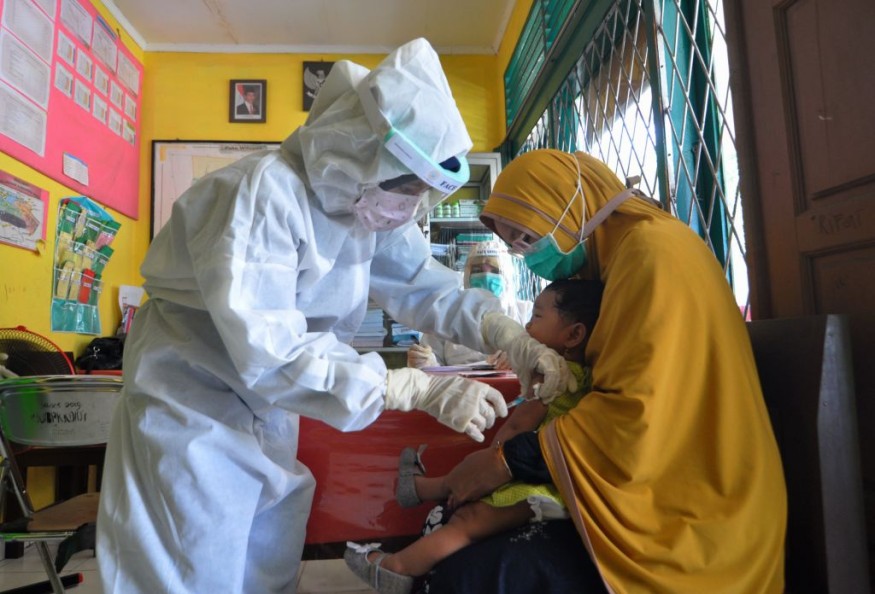Measles outbreak has been reported in the state of Ohio over the past several weeks this December, reaching several dozens of cases, affecting mostly children.
Local sources reported the measles infection is increasing, where unvaccinated individuals are more at risk.
Ohio Measles Outbreak

Measles infections have increased to at least 74 cases in central Ohio last week, a jump of 50 from the week before it, according to the Columbus Public Health, as cited by the medical news website MedPage Today.
All cases affected children and adolescents, with 69 cases being younger than 5 years old and are split between boys and girls.
None have died from the ongoing Ohio measles outbreak so far but 26 people have been hospitalized, according to the local health authorities.
In addition, no cases have been reported in children with a full vaccination against measles.
Among the total cases, 69 were unvaccinated, four occurred among children with only one measles vaccine, and one has an "unknown vaccination status."
Investigation by health authorities have found that most cases are old enough for at least one dose of MMR vaccine, also known as the measles, mumps, and rubella vaccination.
However, their parents chose not to have them vaccinated, according to an email to MedPage Today by Kelli Newman, director of public affairs and communications at Columbus Public Health.
Newman wrote to the medical news site that they are not expecting an increase in MMR vaccination demand despite the Ohio measles outbreak and are not anticipating a surge of cases before it begins to subside.
Still, many of the children required hospitalization since they are very sick and can suffer to a myriad of health complications, including dehydration, encephalitis, and pneumonia.
Also Read: Deadly Measles is Back in the US, But Why?
What is Measles?
The measles disease is a highly contagious infection caused by a virus.
In 2018, there were over 140,000 measles deaths globally, where most are children under the age of five even amidst the availability of a safe and cost-effective vaccine, the World Health Organization (WHO) reported.
However, measles is still a serious disease even if measles vaccination resulted in a 73% drop in related deaths between 2000 and 2018 around the world.
In 2018, approximately 86% of the world's children received at least one dose of measles vaccine before their first birthday through routine medical health services, an increase by 72% in 2000, the WHO added.
Prior to the introduction of measles vaccine in 1963 and other widespread vaccination like the MMR vaccine, major epidemics occur around every two to three years and measles caused an estimated 2.6 million deaths annually, according to the health authority.
To prevent symptoms and even potential death, the Centers for Disease Control and Prevention (CDC) recommends that the public should get MMR vaccine to protect themselves not only from measles but also against mumps and rubella.
Children should get two doses of MMR vaccine, starting with the first dosage at the age of 12 to 15 months, while the second dosage to be from 4 to 6 years of age, the CDC instructs.
Related Article: Measles! Nearly 80% of the World Faces Outbreak
© 2025 NatureWorldNews.com All rights reserved. Do not reproduce without permission.





